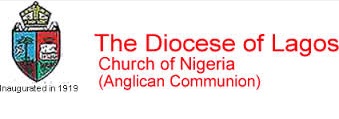CHURCH HISTORY
Growth and Expansion
One of the most remarkable products of the evangelical movements of the 18th Century was the rise and establishment of many missionary societies such as that of the Baptist (1792), “The joint efforts” (1795) and Church Missionary Society – C.M.S (1799). Closely related to those earliest breakthroughs was the birth of the British and Foreign Bible Society (1804) and the C M S inspired founding of the West African Mission in the same year. There was also the Niger Expedition of 1841 which was a direct response by both the Church Missionary Society and Wesleyan Missionary Society to the clarion call by freed slaves in Freetown, Sierra Leone for the spread of the good news of salvation, the true gospel of liberation, among, their people .
That indeed was, the propelling force behind the historic exploratory visits by Henry Townsend of the CMS and Birch Freeman of the Wesleyan Missionary Society to Badagry in 1842 culminating the never to-be-forgotten joint service of Eucharist and thanksgiving and of unity, conducted under the famous” Agia” tree; on Christmas Day, 25th December 1842 by the two church missionaries.
The great labour of the early missionaries such as Henry Townsend, Charles Andrew Golmer and Samuel Ajayi Crowther specifically paved the way for the creation of the Yoruba Mission. The efforts were soon rewarded as Golmer was made Deacon in 1841 and priested the same year. Samuel Ajayi Crowther was himself consecrated Bishop in London on St. Peter’s Day (June 29th) 1864 and his great works and service will remain indelible on the printed pages of world history.
He had founded the All-African Mission in 1847, and headed it successfully until his death in 1891. But following Crowther’s death, the CMS Home office/Secretariat in London had, contrary to the global expectations of church watchers, chosen J .S. Hill as successor, leaving in the cold many of the very capable Africans who were most suitable for the job, with nearly all already gone half-way through the journey to full-‘fledged’ episcopate by serving as Assistant Bishops. Among them were Archdeacons James Johnson, Henry Johnson, Dandeson Crowther (son of late Ajayi Crowther), James Quaker, Isaac Oluwole and Charles Phillips. The Rt. Rev. J.S. Hill assumed leadership and tactfully invited Isaac Oluwole, Adolphus Howells and Charles Phillips to be his Assistant Bishops.
In 1894, Herbert Tugwell was consecrated Bishop of West Equatorial Africa and he was able to talk James Johnson into accepting what he had always rejected as “Half-bishop”. Meanwhile the spate of aggressive evangelical works in the area had further necessitated a further sub-division into two of what used to be known as the “Diocese of Western Equatorial Africa.
On 10th October 1919, the Nigerian country, West and North of the Niger were cut-off from the Diocese of Equatorial West Africa to form THE DIOCESE OF LAGOS. Through the initiative of Bishop Herbert Tugwell, F. Melville Jones, an energetic European Missionary Educationist and Principal of St. Andrew’s College, Oyo was consecrated as the first Bishop
The remaining part – East of the country, was carved out and named DIOCESE ON THE NIGER. Its formal inauguration took place on 5th March 1920 with the Rt. Rev. Bertram Lasbery as her first Bishop. Bishop Lasbery did not however, assume duty as Bishop of the Diocese on the Niger until the year 1922.
Back to Lagos, The Rt. Rev. F. Melville Jones served as Bishop for twenty-one years (1919-1940) before bowing out on retirement in 1940, The Rt. Rev. Leslie Gordon Vining (who was then Assistant Bishop of the Diocese on the Niger) became the second Bishop of Lagos. On 17th April 1951 at the inauguration of the Province of West Africa, Leslie Vining was elected and presented as the first Archbishop of the new Province. Under him, Lagos Diocese was divided into four Dioceses (Niger Delta, Ibadan, Kaduna and Ondo inaugurated in 1952). Vining died at sea on March 1955 and was succeeded by The Rt. Rev. Adelakun Howells. Then following in succession, the episcopacy of Seth Irunsewe Kale from 1963 to 1974; Festus Oluwole Segun from January 1975 to 1985 and the visionary Bishop Most Revd. Dr. Joseph Abiodun Adetiloye from 1985 to 1999.
From 2000 to date the Diocese of Lagos has flourished under the able leadership of His Grace, Most Rev. Dr. Ephraim Adebola Ademowo, a calculated, amiable and sagacious Bishop of note.
With seven (7) Bishops between 1919 and 2008, and its phenomenal expansion by leaps and bounds within the same period, the Diocese of Lagos has indeed come of age. Having given birth to numerous other Dioceses and having produced several Bishops who are holding their own in different parts of the Church of Nigeria, Lagos Diocese can look back today with a deep sense of fulfillment and gratitude to the Almighty God.
PAST BISHOPS









